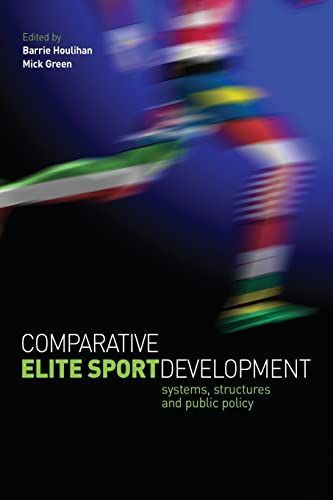
Comparative Elite Sport Development Systems, Structures and Public Policy
There is a paucity of academic work in the area of elite sport development despite there being ample evidence that achieving international sporting success is of increasing importance to the public (exemplified by consistent media interest in elite success or the lack of it) and to governments in most developed countries who have, almost without exception, increased the level of public funding for elite squad development often to the detriment of other sports policy objectives such as increasing general levels of participation. Comparative Elite Sport Development: systems, structures and public policy focuses on the identification and development of elite sporting talent especially in Olympic sports. Written by a team of international contributors it applies a reflective and analytical approach, and both informs, and is informed by, established bodies of theory in policy analysis. Uniquely, it adopts a comparative approach of policy rivals, leading 'sports powers' and policy innovators, which provides broad and thorough analytical coverage. * A revealing and unique comparative study of policy rivals, leading 'sports powers' and policy innovators - including China, Japan, Singapore, Germany, France, Poland, Norway, New Zealand and the United States * Edited by well established experts in the field and contributed to by a global team of cutting edge researchers * Focuses on the hot-topic of identifying and developing elite sporting talent especially in Olympic sports